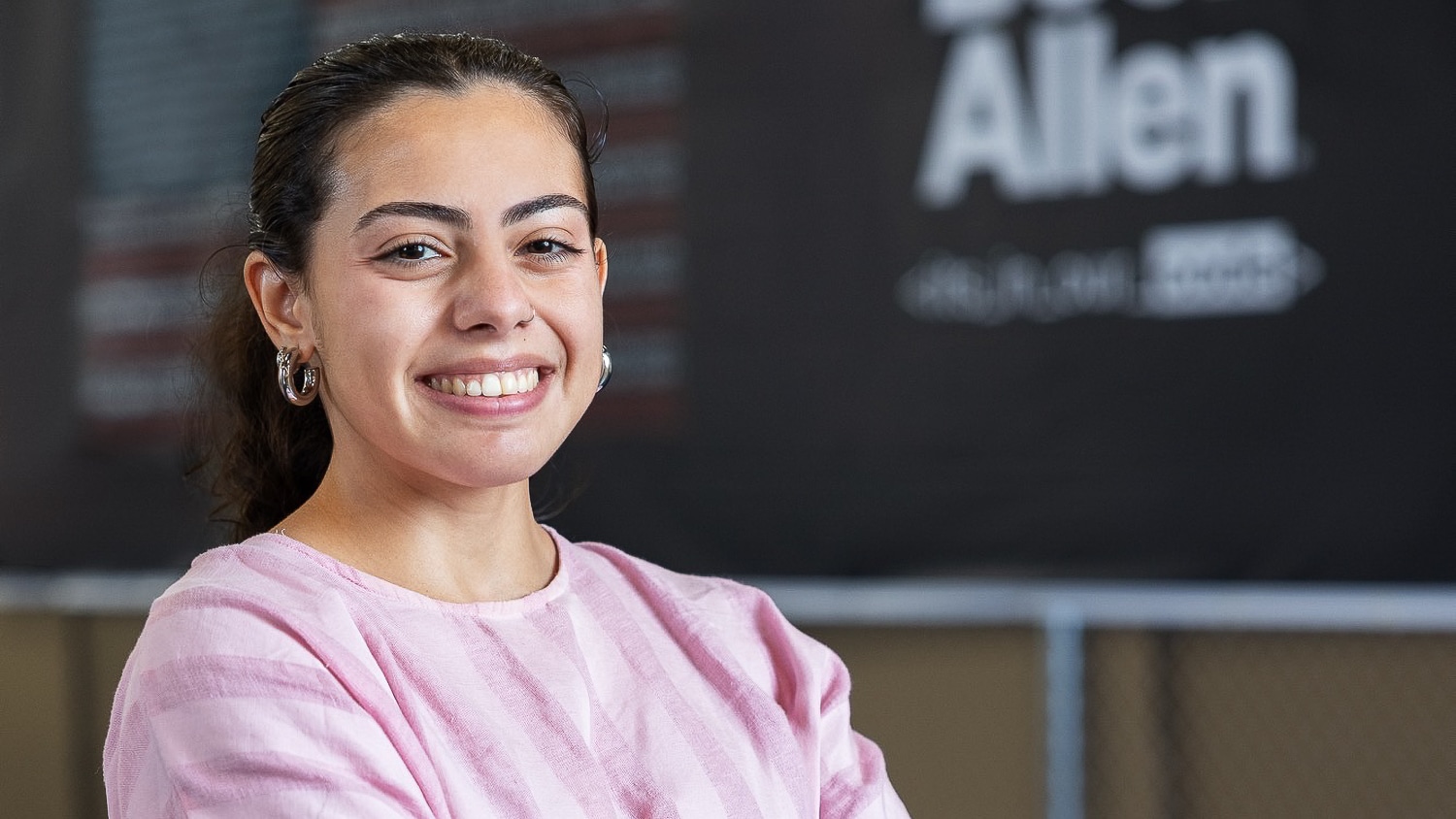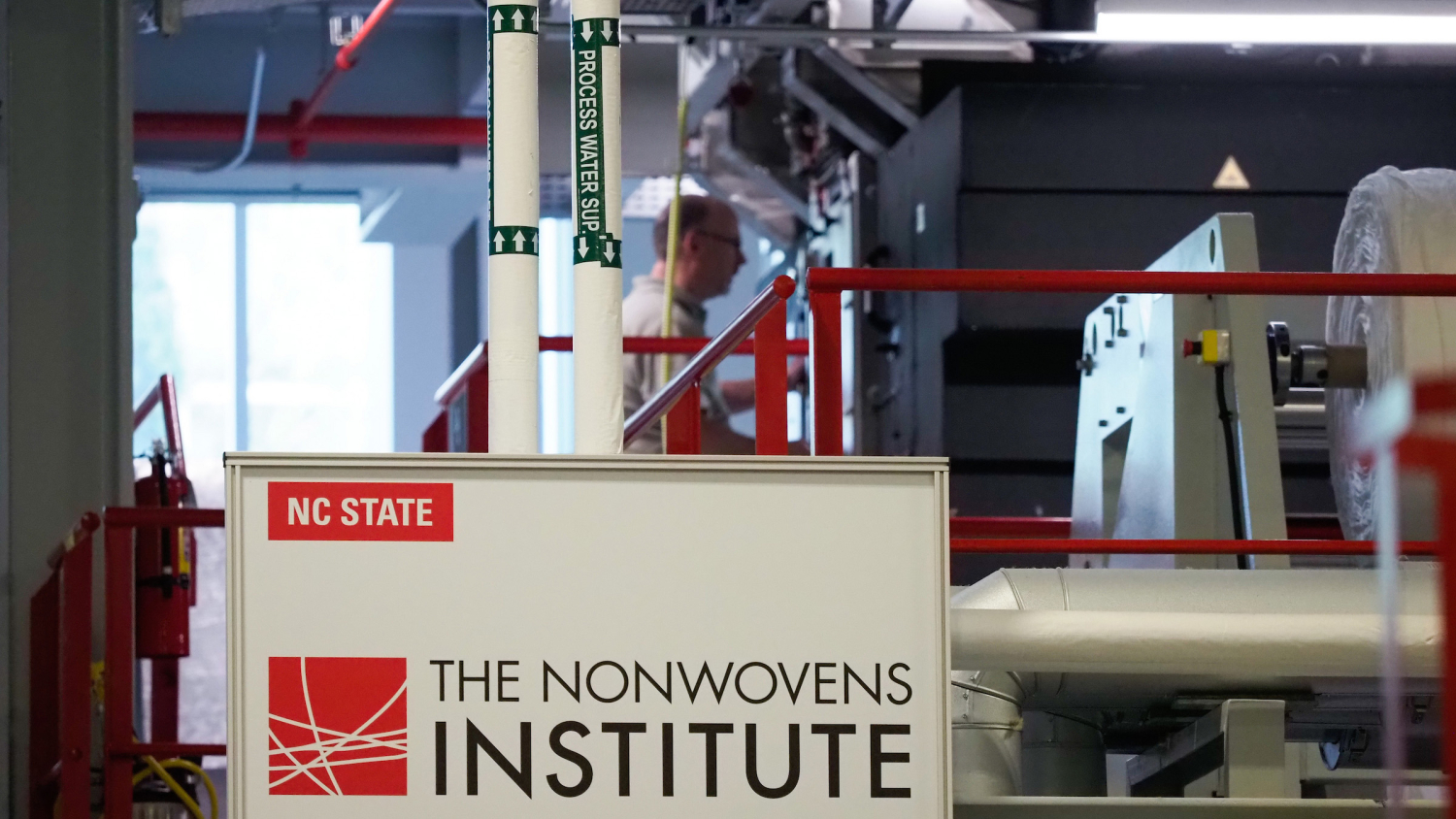By Sean Cudahy
It’s been three years since Peter Hauser retired following more than two decades as a professor in the Wilson College of Textiles. And yet, his longtime employer – his alma mater, too — is never far from his mind.
Yes, Hauser and his wife, Helen, still live in Raleigh and have a family full of fellow NC State University graduates; self-described “diehard” Wolfpack fans, you’re likely to find an ACC basketball game on their television on any given night.

But these days, you’re equally likely to find Hauser on NC State’s Centennial Campus, contributing however he can in an arrangement that’s turned out to be the best of both worlds.
“I stay as busy as I want to be. But at the same time, I’m able to travel and enjoy time with my family,” Hauser says of his role as professor emeritus.
That flexibility is certainly well deserved, on the heels of a career that brought him around the world over the course of two distinct chapters.
Career beginnings in the textile chemistry industry
After earning his undergraduate and graduate degrees in chemistry at NC State, Hauser embarked on a 24-year run as an industrial research chemist.
Working with several major textile manufacturers and textile chemical producers, he honed an expertise in developing chemical finishes for textile products. Hauser had a particular focus on high-value finishes like flame retardants and water repellents.

During his time at a small company based in Charlotte, Hauser helped perfect a dyeing process that cut both energy and resource usage — as well as manufacturer costs.
The new method produced the iconic indigo color we think of with denim using a third less dye, saving money and reducing the environmental impact of the dyeing process along the way.
To demonstrate this, Hauser traveled extensively through Latin America during this career.
“Mexico, Argentina, Venezuela, Colombia, Brazil, Chile,” he rattles off, naming countries he visited. “I was able to run experiments in different companies’ facilities and demonstrate the value of our processes.”

In 1997, though, his career entered a new phase when he joined the faculty at the Wilson College — a role he took on hoping to share his extensive, real-world knowledge with the next generation of textile chemists.
“I’d spent 24 years in the industry,” he says. “I think that made me — I hope — a more interesting teacher. Because I knew what it was like out in the real world.”
Returning to NC State
Returning to NC State, Hauser’s new role saw him teach both graduate and undergraduate courses within the Wilson College.
He also took on leadership roles in the Department of Textile Engineering, Chemistry and Science, starting as associate department head in 2004, and later as interim department head from 2014 to 2017.

But even as he imparted his knowledge on students, Hauser continued to deepen his own understanding of textile chemicals. His pioneering research into cationized cotton helped perfect a more sustainable approach to dyeing textiles.
“We changed the cotton fibers so it could be dyed in a way that was more environmentally friendly,” he explains.
“ “The best feeling you get as a teacher is when your students succeed. I’m proud of them, and hope I had something to do with it.”
It’s an achievement he labels the “most interesting” aspect of his career in academia…and one that helped set the stage for the achievement that, he says, was most humbling.
In 2017, the American Association of Textile Chemists and Colorists (AATCC) cited that research and other career accolades in honoring Hauser. The organization presented him with the Olney Medal, which is awarded for outstanding contributions in the field of textile chemistry.
“I think that is the one thing I’m most proud of: being honored by my peers,” Hauser acknowledges.
That award came just as Hauser entered a phased retirement. He entered full retirement right around the time the pandemic ushered in an era of online learning.
“That was a good time to retire,” he quips.
But three years later, the passion Hauser brought to a 24-year industry career and 20-plus years more as a faculty member remains as evident as ever.
Returning to NC State, again, as professor emeritus
Today, Hauser maintains an office on campus and continues with the consulting work he began during his teaching career.
“It’s fun,” he says, working with lawyers and entrepreneurs to develop chemical processes, which are then tested using state-of-the-art equipment in the college’s Dyeing and Finishing Pilot Laboratory.

One ongoing consulting project focuses on commercializing the cationic cotton process, a longtime area of expertise for Hauser, which is now being evaluated in production trials in Asia.
Another ongoing project is determining whether a new, non-formaldehyde wrinkle resistant chemical finish might be commercially viable.

If Hauser’s continued work as a professor emeritus helps cement his legacy at NC State, so, too, does the fact that his wife and two sons — along with numerous nieces and nephews — are now also Wolfpack alumni.
That family bond has only deepened the connection he feels with the university, and his own successes he found there.
Now in his emeritus role, he can pause to appreciate those achievements from time to time.
“Some of my students have gone on to become leaders in the industry,” he points out. “The best feeling you get as a teacher is when your students succeed. I’m proud of them, and hope I had something to do with it.”
- Categories:



